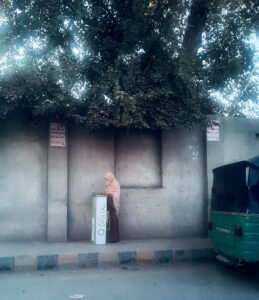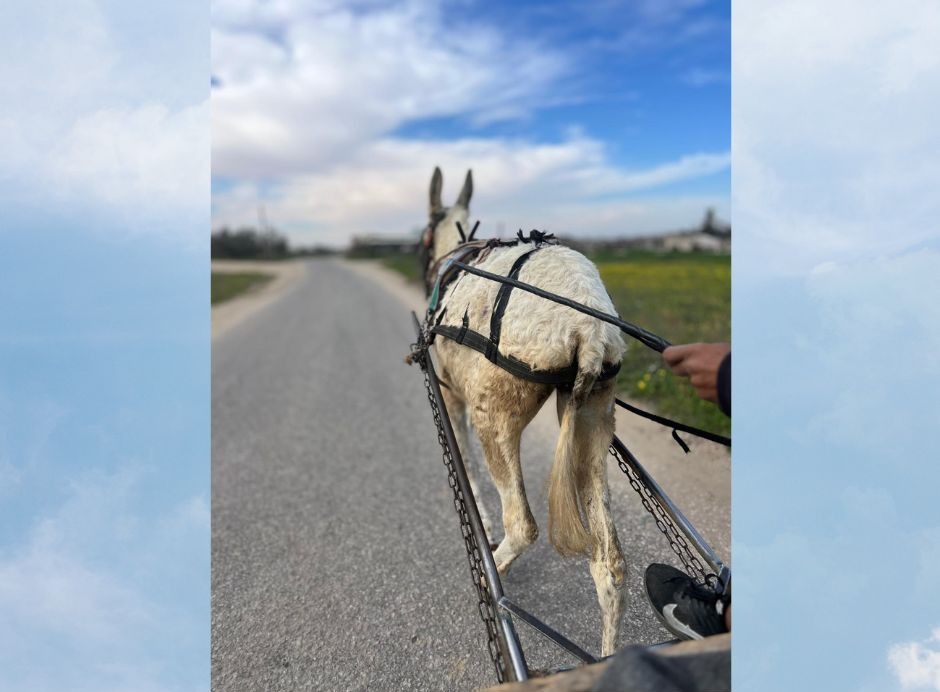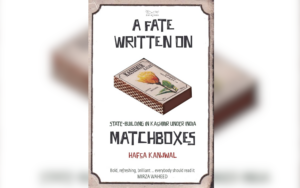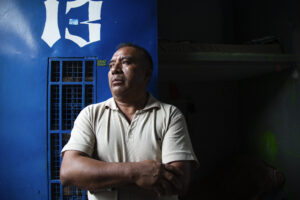
Letters from Palestine: To the One of Grass and Longing

Pets, like everything else, are falling victim to Israel’s genocide in Palestine
To the little one who grew up among us, the one who’d twitch her ears every time we called her, who’d run lightly towards us, a part of our home.
O daughter of the earth and the wind! O friend of the long days under the sun, I write to you today after one hundred and twenty-two days, after your whinny has long settled in our memories, and your slow steps have turned into an unseen longing. We thought you’d stay forever.
My dear, remember how we used to laugh at your stubbornness? How we loved it! Because in the simplest ways it resembled us. Remember how my father scolded my brother for urging you to hurry up? How my father let you roam as you pleased, seeing something in you—a friend, a companion.
I still remember our amazement every time you stopped at a traffic light, waiting for the green signal, as if you understood the rules better than humans did. You walked confidently without a whip or a word, as if the whole city recognized you as a respected citizen. You didn’t know how to speak but you understood affection. You didn’t know how to write but you wrote a thousand memories upon our hearts.
Remember when we named you Soso? For your beauty, your white color, and your wide eyes. Oh, you knew the way home better than anyone else! As if you had memorized it from a map and folded it underneath your chest, just as you’d memorized our faces. Remember the times we walked behind you? And the times we walked with you? And the times we walked ahead of you? Yet you always led us home.
I don’t find you in our yard anymore nor in the streets outside, but I find you in the scent of the straw, in the silence of the morning, in the shade of the lemon tree you loved to rest underneath. You know the tree withered after you.
My little one, we cannot forget the moments we offered you food and you only desired barley mixed with straw, as if your taste were a rural aristocrat who knew what satisfied their body and soul. And we do not forget how you’d pour out the bucket of water if it was not clean enough! You know how graceful you were? The keeper of an old promise with my father, a covenant of understanding and affection. You knew how to live. You just didn’t know how to survive.
Remember the day, O, our white companion, when you were suddenly struck by a stomach-ache after eating food you weren’t accustomed to? Your bewildered look asked for help, so my father rushed to ease your pain and somehow found a bottle of 7-Up. You know what it means to find a carbonated drink in these times. It was a miracle. You recovered while we found the food that suited you, no matter the cost. Until, my dear, the day I will never forget.
The sun was leaning toward the horizon and the air was still, as if holding its breath for what was to come. In the corner of the yard under the shade of the lemon tree, you were resting—this time differently, not for comfort, but departure. My father stood at your head in silence, looking at you with a gaze that held a faint hope, as if in his heart he was whispering, “Get up, my daughter. Get up!” But you couldn’t. Your wide, clear eyes were still open, looking at us, but your gaze was not what it used to be; it was bidding us farewell. Father, sisters, the little ones and I, we all felt you were saying, “Forgive me. I can no longer bear this hunger or the weakness consuming me.”
Siblings sat beside you, one of them reaching out to stroke your neck while the other pleaded with the veterinarian to find you a cure. The little ones said, “Soso! Soso, you are a hero! Be patient, endure, Allah is with you.” Your body, once strong, that knew the way without a guide, had become as light as autumn leaves. Your breaths came in gasps, one after another, like slaps in our face.
My father, never known to be weak, bowed his head over you, placed his hand on your side and said in a broken voice, “She’s tired, that’s all. She has gone to God’s mercy.” We looked at you as if a part of our souls had departed. The birds fell silent. The barking of the dogs stopped. Life mourned your departure, Soso.
Everything quietened and the sky relaxed as if to comfort us. Siblings began to dig your grave. You know we didn’t go far and we didn’t take you to an abandoned place; we buried you where you’d safely stretch out every afternoon, where you used to sleep, under the shade of the lemon tree in the corner of the yard.
Oh, Soso, father and the siblings and the little ones carried your body as if you were a child overcome by fatigue. They lifted you with hands trembling from the pain of familiar loss and laid you gently in the grave as if putting you to sleep, knowing this time it wouldn’t be broken by your whinny nor would your eyes open again. Father began to cover you with dirt, each grain a part of our story, a cover finally for a friend who shared our labor, our silence, our longing, our war, our hunger, our fear, our life, our love, everything.
Your final resting place was a place you knew and loved. You know father sat near you on the ground after the burial. Placing his hand on the soil as if to stroke your neck, quietly he said, “The war upon us has killed you as it killed everyone. Now your spirit is free. Free from hunger and illness.”
Our little ones could not accept the idea of your loss for you were the companion of their joy and innocence, the source of their squabbles over who’d lead you to the field. You reminded them of everything real and simple, far from the rigid electronic games. You knew them and they knew you, so no words were necessary. But when you disappeared from under the lemon tree, they began to miss the moments they’d run after you in the yard. You were the spirit that infused our lives with new meanings.
I remember, Soso, the night when father could not sleep well, not from the sound of the warplanes or rockets but from his sorrow of your absence and loss. How could he rest his eyes when you—whom he raised for over twenty-five years since you were just a year old—were gone not of fate or old age but of hunger and the cruelty of this war upon us? This war has taken everything from us.
You know people’s conversations now are all about donkeys and their resilience, and how during this war they endured and stood by us more than humans did? How they became our means of transportation, bearing burdens beyond their capacity, walking through paths muddied with fear, amidst the sounds of rockets shaking the sky, without failing or leaving us. Truly, they were our faithful friends and companions in war. Neither does this war distinguish between humans and animals or the young and old, or those who carry weapons and those who carry none. The beast devours everyone.
How many a loyal dog starved until they withered. How many a cat searched for their broken window to sleep beneath but never found it. And how many a donkey like you stood at the side road waiting for those who’d never return. They knew their way back yet they couldn’t find their home. They were victims of every random shell, every bucket of water dried up, every hand that fed them rendered unable to hold even a loaf of bread.
If animals could, they’d write about the fear of long, terrifying nights, about mornings filled with loss, about silences that became death. The war hasn’t only torn down walls; it’s torn apart the bond that connected us to all beings who were a part of our stories, our childhood, our silence, our safety. Homes have been rendered incomplete, the silence outside incomplete, the earth incomplete.
Everything in Gaza is one battle. Humans are at war with time, animals are at war with hunger and destruction while the birds of the sky are struggling to survive, but in the end this war on us killed everyone in the same way, destroying everything that had meaning. No one survived it.
At the end I wanted to tell you, my dear, since that fateful day, we haven’t passed by that corner without slowing our steps, for now it’s more than just a corner. It’s a testament to an unforgettable love, a place inhabited by the echo of a life that once walked among us.
Rest in peace. May your free spirit live in a world that knows no sorrow.
Asma’ Salama Abu Mansi is a Palestinian writer and community activist from Deir al-Balah, the Gaza Strip.





